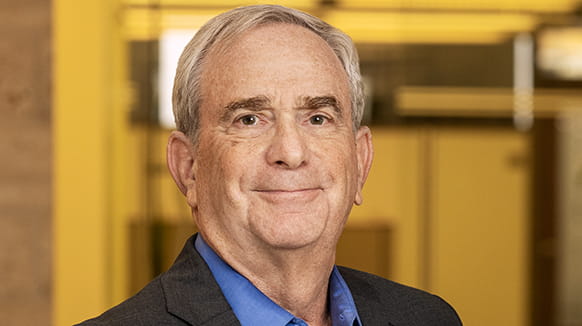The American College of Environmental Lawyers (ACOEL) published an article from Haynes Boone Senior Counsel Jeff Civins. Below is an excerpt:
Hurricane Ian brought “fierce winds, unrelenting rains and catastrophic flooding to southwest Florida. As Ian approached, Florida Governor Ron DeSantis acknowledged that, “We all need to work together regardless of party lines,” expressing thankfulness for the Biden administration’s assistance. Offering Governor DeSantis the “fullest federal support,” President Biden echoed the Governor’s thought, stating: “At times like this, America comes together. We’re going to pull together as one team, as one America.”
The willingness of the two potential rivals for the 2024 White House to cooperate in meeting the immediate threat of Ian is admirable. However, that cooperation masks the failure of federal and state governments, and the private sector, to work together to tackle climate change, which likely exacerbated the intensity and destructiveness of that storm. New data from NASA, the New York Times reports, revealed that warm ocean waters fueled Hurricane Ian to become one of the most powerful storms to strike the U.S. in the past decade, bringing “fierce winds, unrelenting rains and catastrophic flooding to southwest Florida.” The Times goes on to point out that scientists say that climate change has made hurricanes more powerful, as warmer waters strengthen and sustain them. And even a slight rise in sea level makes the threat of a storm surge that more terrifying.
There is, however, a model for governmental cooperation even though it has not yet proved workable for addressing the challenge of climate change in the absence of an immediate crisis.
The model, upon which most federal pollution statutes are based, is that of cooperative federalism, the idea that the federal government sets minimum national standards for specific environmental media with states then being able to obtain authority for developing and implementing programs to meet those standards. In its strategic plan, “Working Together,” [the Environmental Protection Agency] (EPA) even explains that environmental protection is a shared responsibility among the states, tribes, and the federal government. Regrettably, in the absence of a threat that is immediate and palpable, like a hurricane, the concept in practice has often been an oxymoron, with states litigating to undermine or reject national programs to reduce carbon emissions.
Excerpted from the ACOEL website. To read the full article, click here.
Hurricane Ian brought “fierce winds, unrelenting rains and catastrophic flooding to southwest Florida. As Ian approached, Florida Governor Ron DeSantis acknowledged that, “We all need to work together regardless of party lines,” expressing thankfulness for the Biden administration’s assistance. Offering Governor DeSantis the “fullest federal support,” President Biden echoed the Governor’s thought, stating: “At times like this, America comes together. We’re going to pull together as one team, as one America.”
The willingness of the two potential rivals for the 2024 White House to cooperate in meeting the immediate threat of Ian is admirable. However, that cooperation masks the failure of federal and state governments, and the private sector, to work together to tackle climate change, which likely exacerbated the intensity and destructiveness of that storm. New data from NASA, the New York Times reports, revealed that warm ocean waters fueled Hurricane Ian to become one of the most powerful storms to strike the U.S. in the past decade, bringing “fierce winds, unrelenting rains and catastrophic flooding to southwest Florida.” The Times goes on to point out that scientists say that climate change has made hurricanes more powerful, as warmer waters strengthen and sustain them. And even a slight rise in sea level makes the threat of a storm surge that more terrifying.
There is, however, a model for governmental cooperation even though it has not yet proved workable for addressing the challenge of climate change in the absence of an immediate crisis.
The model, upon which most federal pollution statutes are based, is that of cooperative federalism, the idea that the federal government sets minimum national standards for specific environmental media with states then being able to obtain authority for developing and implementing programs to meet those standards. In its strategic plan, “Working Together,” [the Environmental Protection Agency] (EPA) even explains that environmental protection is a shared responsibility among the states, tribes, and the federal government. Regrettably, in the absence of a threat that is immediate and palpable, like a hurricane, the concept in practice has often been an oxymoron, with states litigating to undermine or reject national programs to reduce carbon emissions.
Excerpted from the ACOEL website. To read the full article, click here.
